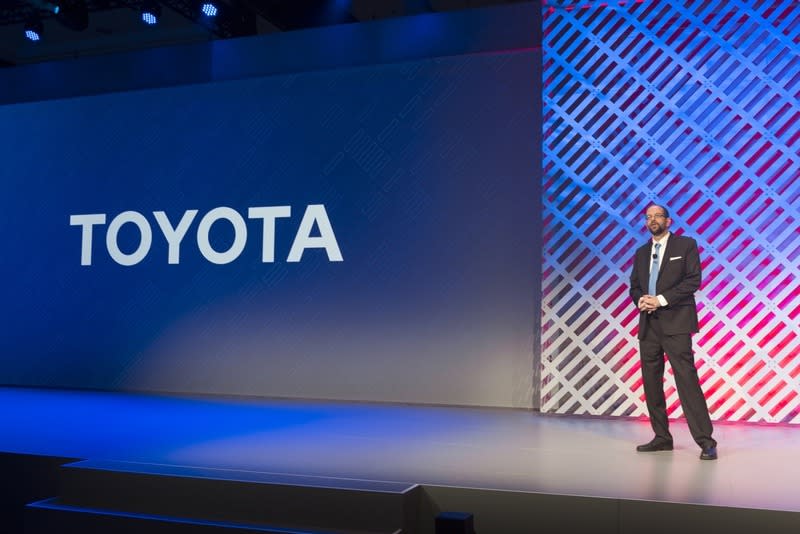Toyota Spending $1 Billion to Develop AI-Driven Cars and Robots for the Home

Smart guy says robots can drive better than you. (Photo: Toyota)
Last fall, Toyota revealed the formation of the Toyota Research Institute (TRI), an ambitious project to create self-driving cars that use artificial intelligence and robotics. Today at the CES show in Las Vegas, the Japanese automaker opened TRI’s kimono a little wider and gave us all a peek inside.
Despite the hype surrounding driverless car technology, the field has not really progressed that far, says Dr. Gill Pratt, former leader of the US military’s DARPA robotics challenge, now CEO of TRI.
“Most of what has been collectively accomplished by self-driving cars is relatively easy, because driving is relatively easy,” he said. “Where we need the most help is when driving is not easy. That’s the part TRI is trying to address.”
The goal is not merely to build a truly autonomous vehicle, but to solve mobility problems everywhere, including inside our homes, says Pratt.
TRI has launched with campuses at Stanford Research Park in Palo Alto and MIT’s Kendall Square, with plans to build more facilities around the world, he says. It has four key goals:
1. Build cars that cannot be crashed, no matter how incompetent the driver;
2. Allow people who can’t drive to have access to motor vehicles;
3. Build products that enhance indoor mobility, including home robots;
4. Develop new materials to lower the cost and weight of cars and improve their efficiency.
Pratt says TRI scientists have already embarked on some 30 autonomous car projects. For example, in the “Uncertainty on Uncertainty” project, researchers hope to figure out how cars will respond when they encounter a situation no one has thought of yet — essentially, building cars that can think and react to new situations as humans do, only much more reliably.
Another project, called Car Can Explain, seeks to allow AI-driven cars to explain themselves afterward — to let humans know why they did what they did.
Toyota has gathered an all-star team of scientists and advisors at TRI, including former executives at iRobot, Facebook, MIT, and the US Navy.
Ultimately, TRI may end up redefining Toyota itself, says Pratt.
“Home robots may end up being more prized by consumers than cars are,” he said. “It’s entirely possible that robots may be for Toyota in the 21st century what cars were in the 20th.”

